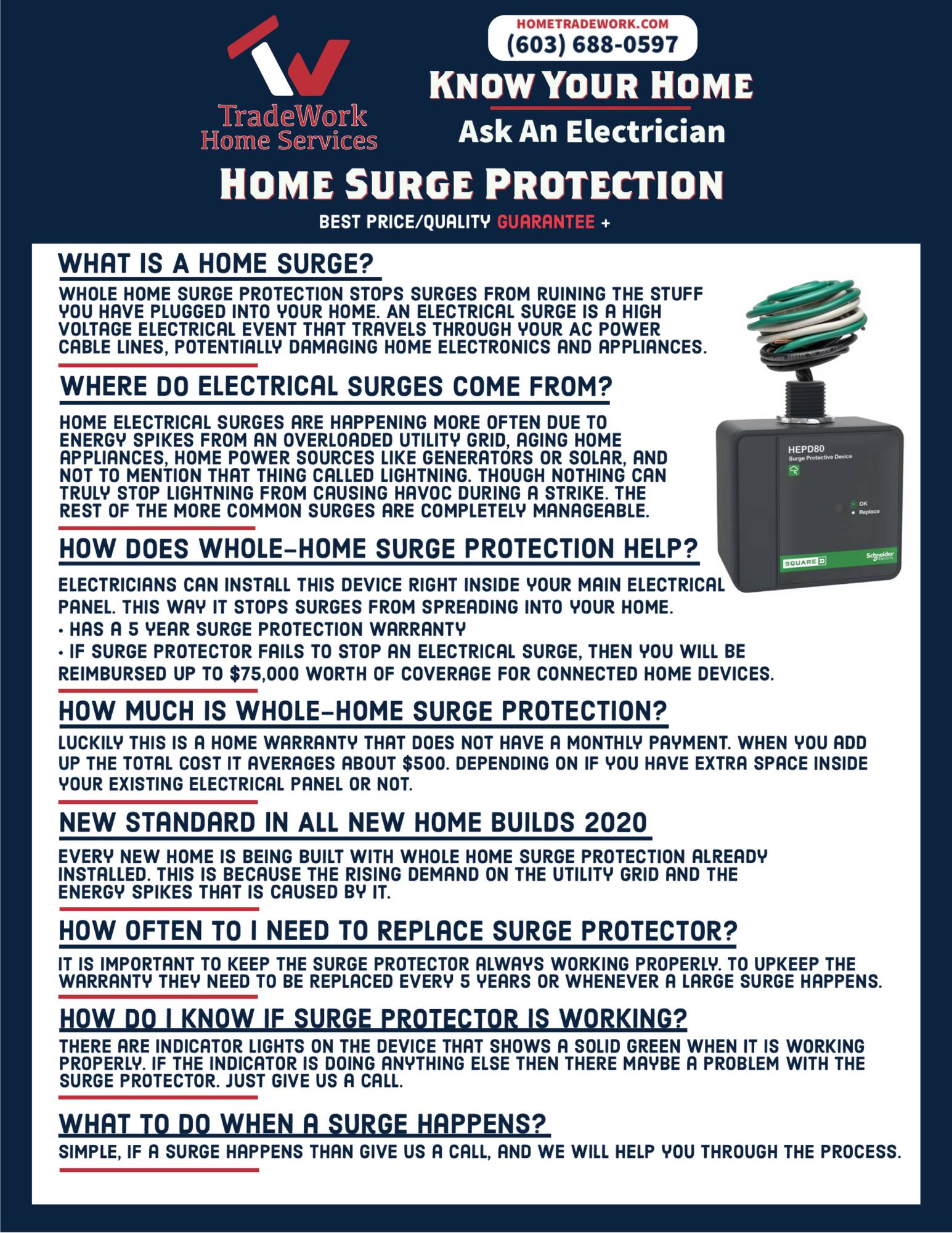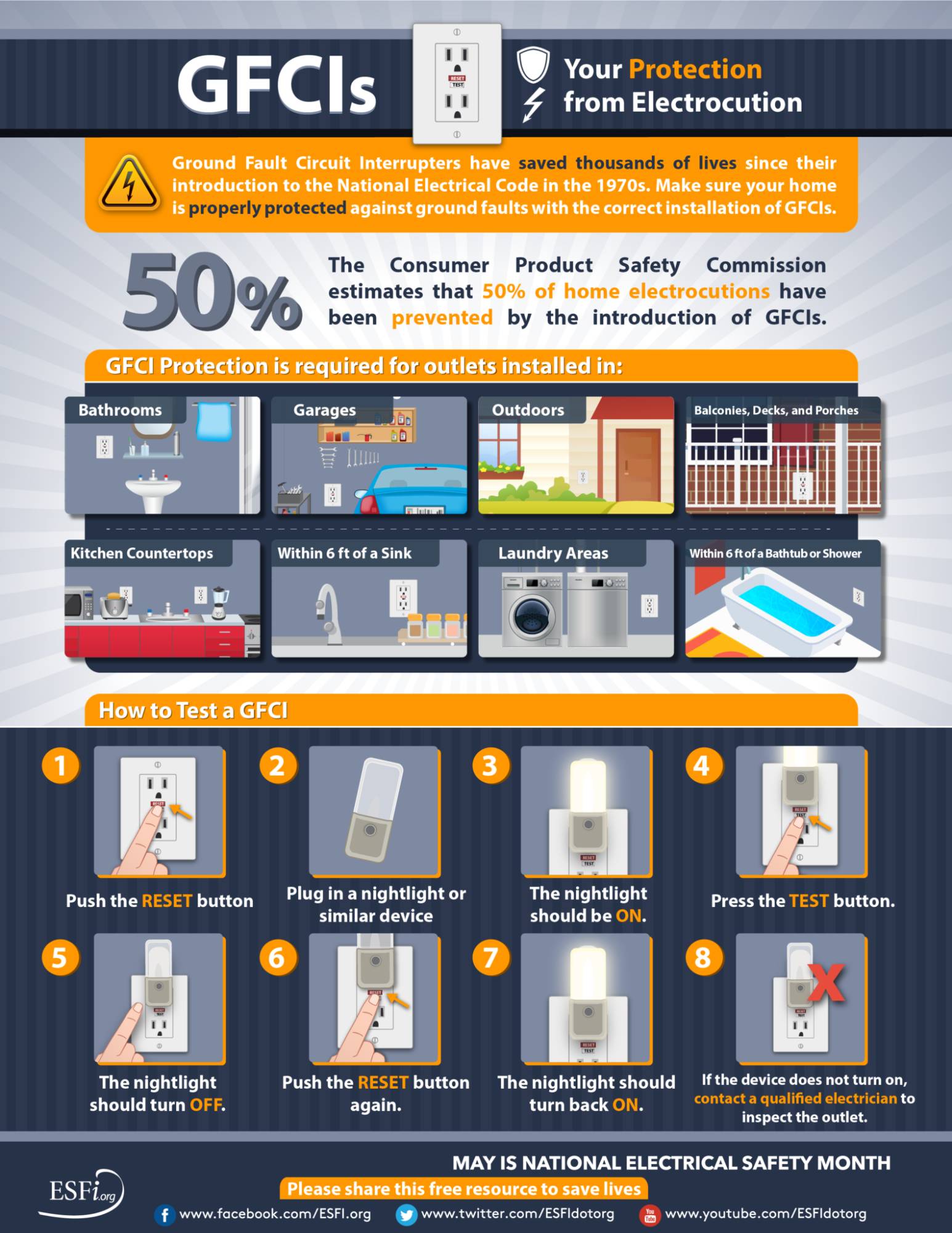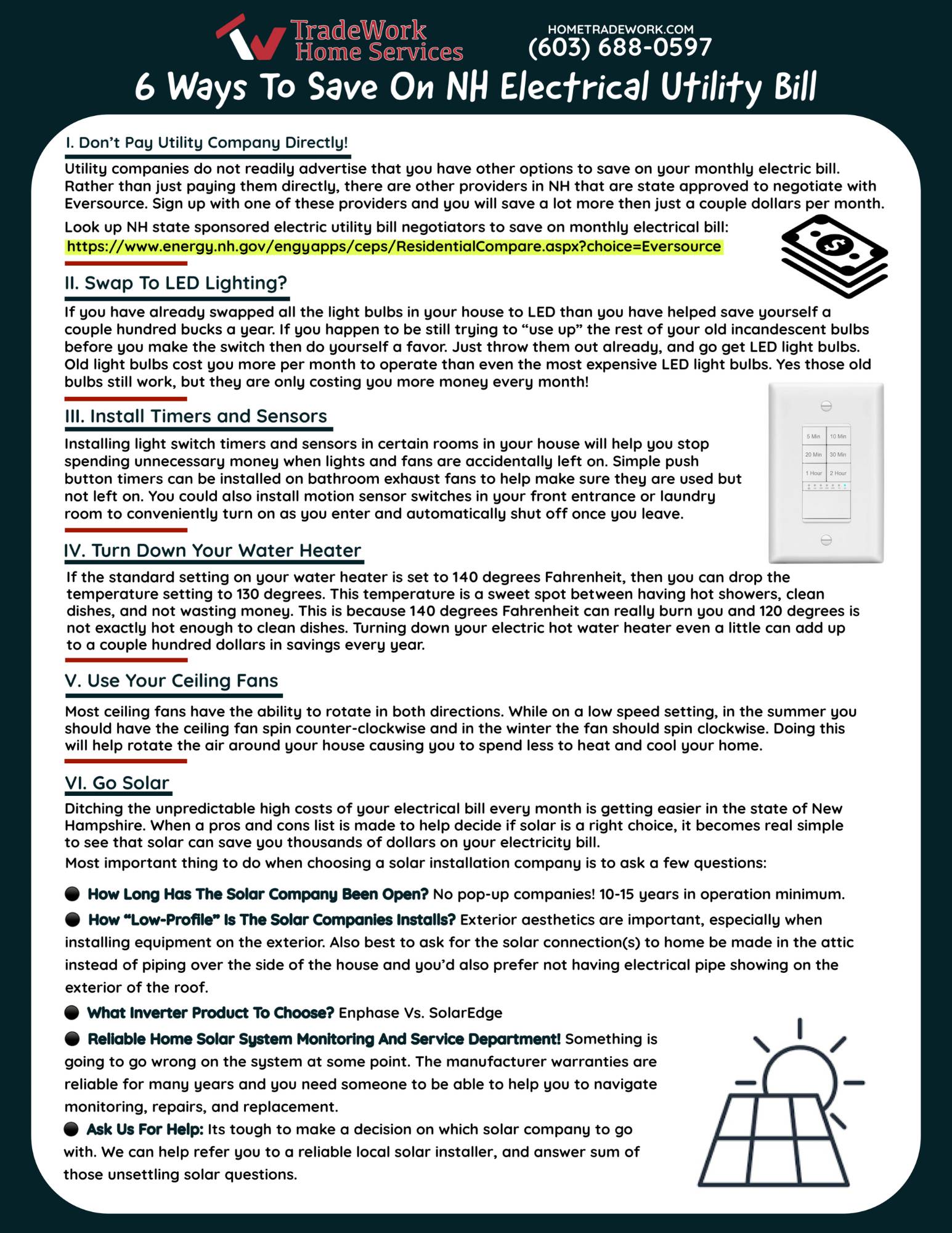Is Whole Home Surge Protection Worth It?
Whole home surge protection stops surges from ruining the stuff you have plugged into your home. An electrical surge is a high voltage electrical...
2 min read
 Matthew Gotay
:
Mar 30, 2024 9:37:59 AM
Matthew Gotay
:
Mar 30, 2024 9:37:59 AM

Buying a home is an amazing milestone that gives you a solid foundation for your families future. It is always important to remember that your home will not stay brand new forever, and it is up to you to keep up on home maintenance and repairs.
When it comes to your home electrical, there are very few “electrical emergencies” because electrical breakers are designed stop anything bad from happening before it starts. Ask an electrician to give your home a much needed check-up.
Home circuit breakers last on average about 30 years until they need to be replaced. Lifespan of an electrical breaker largely depends on how much usage it gets throughout the years. If power is being constantly applied to a breaker then it could fail sooner then a electrical breaker that has no power being applied.
Once circuit breakers reach a certain age they fail to stop an electrical shock from happening. Resulting in an extremely unsafe living condition inside your home.
Find the manufacturing date of your existing electrical circuit breakers. It Is not an exact science, but is a very good rule of thumb.
Have a licensed electrician do a physical stress test your homes electrical panel in order to ensure your breakers are work properly. If your electrical breakers fail to pass the stress test then it’s time to replace them with new ones.
There are very few electrical emergencies in your home because your electrical breakers stop a hazard before it starts. If you neglect your homes electrical safety then it is only a matter of time before something really goes wrong.
 2023 Electrical Safety Code requires Arc Fault Protection (AFCI) to be installed on all general use electrical outlets and lighting throughout a home.
2023 Electrical Safety Code requires Arc Fault Protection (AFCI) to be installed on all general use electrical outlets and lighting throughout a home.
Arc-Fault Protection Breakers are the new standard in home electrical safety. Regular breakers protect your home from significant electrical hazards, but they lack the precision to monitor and test to verify their effectiveness. Arc-Fault breakers have the ability to monitor and test to make sure everything is working as it should.
The following home electrical projects will be required to be upgraded to AFCI protection:
Whenever adding electrical wiring that is 6 feet or longer to an existing home electrical circuit.
Pretty much whenever you install a new electrical circuit to the living spaces of your home.
During any home electrical renovations, remodels, or new home builds.
Some cities & towns require you to upgrade to AFCI protection whenever you replace an electrical outlet, light switch, or when you upgrade your electrical panel.
Have More Questions About Arc Fault Protection For Your Home?
To find out more details on why arc fault protection has become the new standard in home electrical safety, check out:

Whole home surge protection stops surges from ruining the stuff you have plugged into your home. An electrical surge is a high voltage electrical...

Ground-Fault Electrical Protection is designed with only you in mind. They are designed to protect you against any abnormal electrical spike that may...

When you go to grab your mail, and see this month's electrical utility bill, what comes across your mind? Are you instantly anxious? Maybe even...